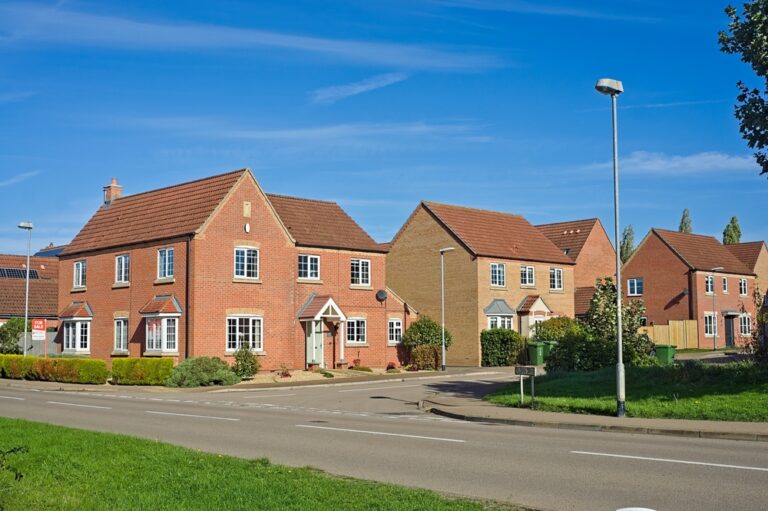When buying or selling a property, there are two major milestones – exchange and completion.
Both are key moments for buyers and sellers, and this guide explains everything you need to know about exchange and completion.
What does exchanging contracts mean?
Exchange of contracts sees solicitors for the buyer and seller swap legal documentation to make the sale of a property legally binding.
The buyer also pays a deposit to the seller at this point, which the seller may be entitled to keep if the buyer pulls out of the purchase after exchange of contracts.
When do you exchange contracts?
Exchanging contracts happens when all other legal and transactional work on a property sale has been completed, including:
- Mortgage valuations and the buyer’s survey have been completed
- The buyer has received their mortgage offer
- The buyer’s deposit funds are with their solicitor
- All searches have been completed
- The buyer and seller have agreed which items will be included with the sale
- The buyer has a buildings insurance policy in place
- Both buyer and seller contracts have been signed
What actually happens when you exchange contracts?
The exchange of contracts is usually carried out between solicitors for the buyer and seller over the phone.
The two solicitors will first confirm several details, including:
- That they are each in possession of a signed contract
- That the seller’s solicitor has the signed transfer of the property’s title deed
- That the buyer’s solicitor has their cleared deposit funds, and a mortgage offer if required
- That a completion date has been agreed between the buyer and seller
Once confirmed, the two solicitors verbally agree on the exchange of contracts over the phone, making the property sale legally binding.
How are contracts exchanged in a chain?
Exchange of contracts when there is a chain of buyers is more complicated than a single property transaction involving one buyer and one seller.
Once all buyers and sellers in the chain are ready to exchange, the solicitors representing the buyer and seller at the bottom of the chain will exchange contracts first.
Once that’s been done, the first seller’s solicitor will exchange contracts with the seller of the property’s they’re buying and so on and so forth, until the top of the chain has been reached.
When the top of the chain has been reached, all exchanges must then be confirmed all the way back down the chain to the chain-free buyer’s solicitor.
The solicitors in the chain usually agree a ‘release’ time for confirmation of all exchanges and if all confirmations aren’t received by that time, the exchange of contracts needs to happen again on the next working day.
What can hold up exchange of contracts?
Exchange of contracts can sometimes be held up by:
- Slow responses from the seller to buyer enquiries
- Buyers and sellers in chains who fail to provide required information or documentation quickly
- Busy solicitors working on several sales at once
- Delays to local searches
- Complications with buyer mortgages
“Avoid being part of a chain if you want to move quickly,” advises Rob Smith, Ellis & Co’s Managing Director.
“Trying to find a time for everyone in the chain to exchange at the same time can be tricky.”
Can you exchange contracts without a completion date?
Exchange of contracts can’t take place unless a completion date has been agreed between all buyers and sellers in the chain.
The agreed completion date is included in the contracts of all buyers and sellers and this date becomes legally binding along when contracts are exchanged.
What happens to a exchange of contracts deposit?
When you exchange contracts, you’ll need to pay your seller a deposit to demonstrate your commitment to purchasing their home.
This is usually 10% of the property’s purchase price.
Your overall mortgage deposit and your exchange deposit are essentially the same, although if you’re putting up a mortgage deposit of more than 10%, the remainder will be paid to the seller on completion.
What is a completion date?
Your completion date is the day all remaining transactional processes are completed and you’ll move into your new home.
All remaining money is transferred on completion and the ownership of the property is transferred from the seller to the buyer.
Once all remaining work and money transfers are completed, you’ll be handed the keys to your new home and can move your belongings in.
What’s the difference between exchange and completion?
Exchange of contracts is when buyer and seller become legally committed to the complete the sale of a property.
Completion, however, occurs after contracts have been exchanged and is when all remaining money is transferred from buyer to seller and the buyer receives the keys to their new home.
Can you exchange and complete on the same day?
While exchange and completion on the same day is possible, it’s only really done in sales where there is no chain, and the buyer is purchasing without a mortgage.
Many mortgage lenders stipulate a minimum timeframe between exchange and completion, meaning doing both on the same day isn’t possible for buyers with a mortgage.
If you’re buying as part of a chain, exchanging, and completing on the same day can be difficult.
And if something holds the exchange process up, such as issues with paperwork or a buyer’s mortgage, you may end up wasting money on removals.
How long does it take from exchange contracts to completion?
The time between exchanging contracts and completion is often one to two weeks.
This gives both the seller and buyer time to arrange removals and organise their things before moving day.
If the buyer is moving from a rental property, however, they may request a longer timeframe between exchange and completion should they need to give notice to their landlord.
“With current demand in moving being far greater than anyone could’ve expected post-pandemic, pressure on the lenders, conveyancers and underwriters is higher than ever before,” says Ellis & Co’s Rob Smith.
“With processes and legal procedures still to follow, you will need to factor these in when you want to move.”
Further reading…
- Your complete guide to making an offer on a London home
- New build or old build? The pros and cons of both
Still searching for that perfect property? See what we have to offer here.








